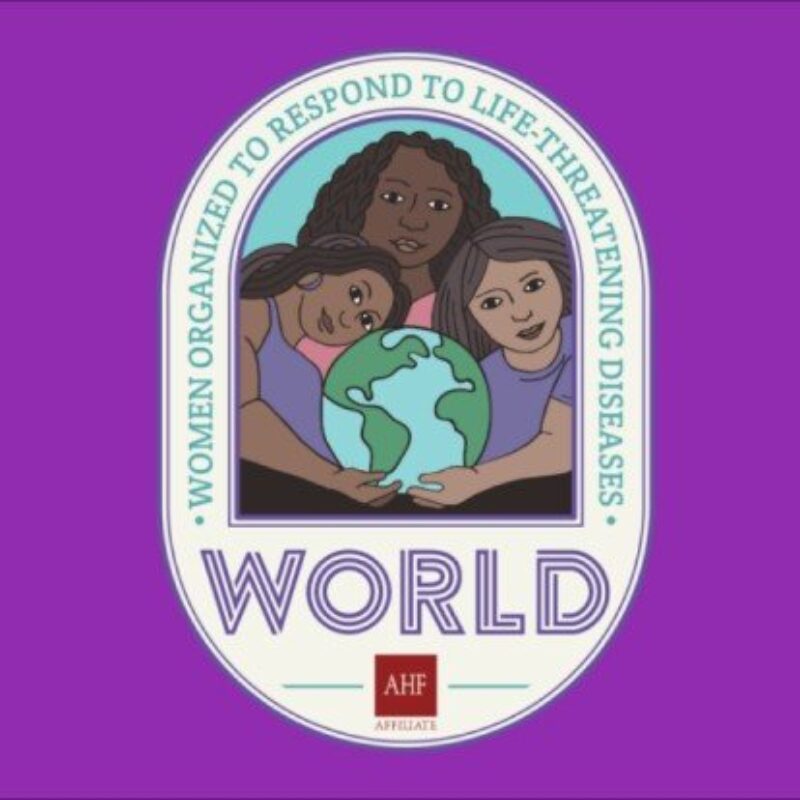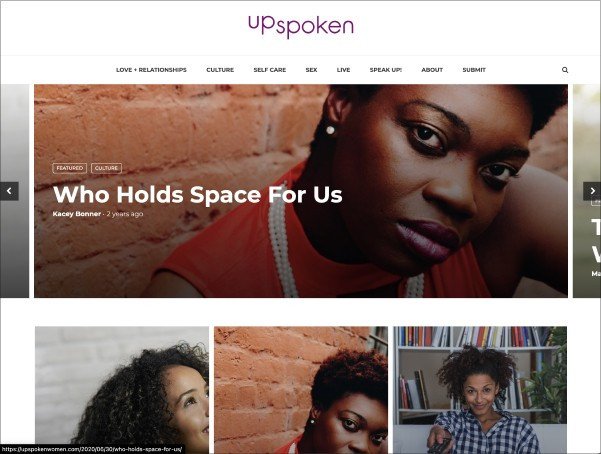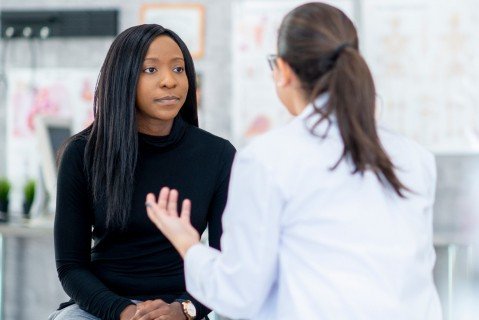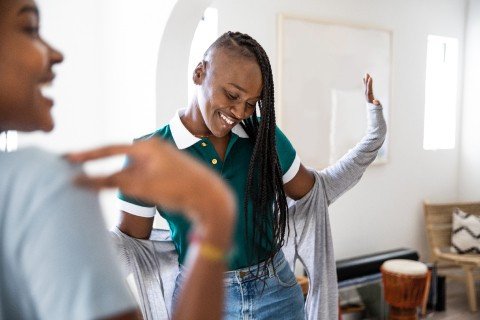Women of Color and HIV/AIDS/STIs Prevention
Preventing HIV/AIDS/STIs Among Women Of Color
Innovations and Best Practices for Women’s Empowerment
In response to the dismaying facts that Black and Latina women made up the majority of women living with HIV, we created two demonstration projects– one in LA and the other in Alameda – a public awareness campaign called Upspoken, and a sexual health empowerment toolkit called RoyalTea. Based in Los Angeles County and Alameda County, the demonstration projects had two main goals: 1) to document and disseminate best practices currently available to address prevention and early intervention for women of color at risk for HIV, AIDS and STIs; and 2) to develop innovations to existing intervention models.
Building on What Works
We funded two demonstration projects, one in Los Angeles County and the other in Alameda County. The demonstration projects built on tried-and-true education and behavior-changing strategies to reduce sexual risk behavior among women and girls of color. Behavioral interventions are evidence-based strategies that include increasing access to health and social services, decreasing costs of access and reducing stigma and discrimination against people living with HIV/AIDS/STIs.
In addition to behavioral interventions, the projects used biomedical interventions, such as antiretroviral treatment and vaccines. Each project had a lead organization and several partner organizations. These organizations used culturally conscious and respectful methods to help African American and Latinx women decrease their risk for contracting HIV and other sexually transmitted diseases.
HIV/AIDS/STIs Prevention at a Glance
2
Demo projects using holistic interventions to reduce HIV/STI infection rates
60,000
Women reached through the Upspoken public awareness campaign
784
Number of Black and Latinx women and girls that participated in the demo projects
Demo Projects
Three-year grants were awarded to UCLA Semel Institute and Women Organized to
Respond to Life-Threatening Diseases (WORLD) to support innovations and promising practices for women of color that prevent exposure to HIV, AIDS, and STIs. Both grantees partnered with community-based organizations that work with Latinx and Black women and girls.
LA County
Led by Dr. Gail Wyatt, Director of the Center for Culture, Trauma and Mental Health Disparities at UCLA’s Semel Institute, the LA demo project partnered with three grassroots organizations experienced in working with African-American women and communities: To Help Everyone Clinic, Watts Healthcare and Black Women for Wellness. Read more about the demo project in the American Journal of Public Health. Or Download the PDF Report.

Root and Rebound restores power and resources to the families and communities most harmed by mass incarceration through legal advocacy, public education, policy reform and litigation.
Alameda County Demo Projects
led by WORLD
In Alameda County, Women Organized to Respond to Life-Threatening Diseases (WORLD) partnered with The Latina Center in Richmond, Cal-Pep, which works with and advocates for the rights of sex workers, and Girls Inc. of Alameda County, a Bay-Area based organization that exclusively serves girls in California.

Women Organized to Respond to Life-threatening Diseases (WORLD) improves the lives and health of women, girls, families and communities affected by HIV through peer-based education, wellness services, advocacy, and leadership development.
Upspoken Women Public Awareness Campaign
A dynamic online campaign to empower Black women to protect their bodies against HIV/AIDS and STIs.
Coordinated by RALLY, an issue-driven communications firm, “Upspoken,” a sex-positive public awareness campaign ran from 2018 to 2020. Consisting of a website, social media, and two live events, the campaign engaged women of all ages to learn about their bodies, and gain tools for having open conversations with their partners about sex and HIV, AIDS and STIs. The campaign also seeks to increase understanding and raise awareness about the disproportionate impact of HIV, AIDS and STIs on women of color and encourage increased funding and improved public policies related to Black women and HIV, AIDS and STIs.
RoyalTea Sexual Health toolkit
RoyalTea was developed to help women start conversations about HIV/AIDS and STIs through providing clear step-by-step scripts related to safer sex practices, HIV/AIDS and STIs prevention. RoyalTea uses beautiful, sex-positive imagery and evidence-backed information to help women better understand and take care of their bodies.
RoyalTea ToolKit
California Black Women’s Health Project
Upspoken is currently managed by the California Black Women’s Health Project

Our Takeaways from Implementing the HIV/AIDS/STIs Prevention Initiative

We Must Adapt
While the demo sites selected interventions that were designed for women of color, they found it critical to adapt the models to further reflect the experiences and values of the women in the communities they served. For example, they modified language, added topics relevant to the age groups served, and created new materials.
Collaboration is Key
Partner organizations collaborated on outreach, recruitment, and engagement strategies, which built a strong foundation for continued success. Partners learned from each other how to better support various communities and were able to lean on each other and continue HIV prevention efforts when the onset of the COVID-19 pandemic forced programmatic changes.


Tailor Capacity-Building
The demonstration projects had different internal capacity for performance monitoring and data management; and therefore, received different levels of support from the evaluation team. Instead of applying a one size fits all approach to evaluation, funders must listen to grantees and prioritize flexible technical support that builds on grantee strengths and provides the most value to them.

